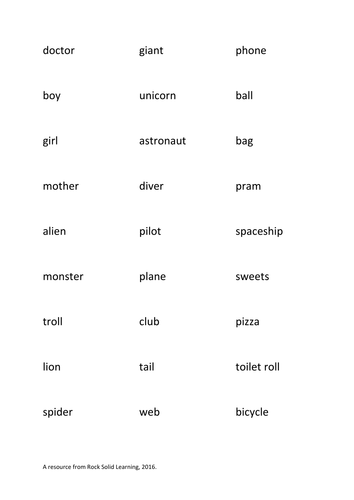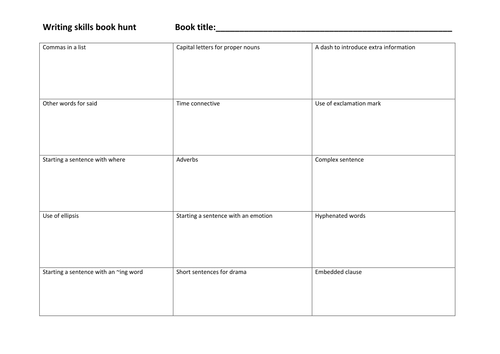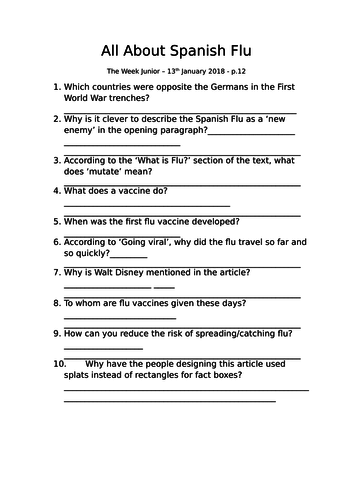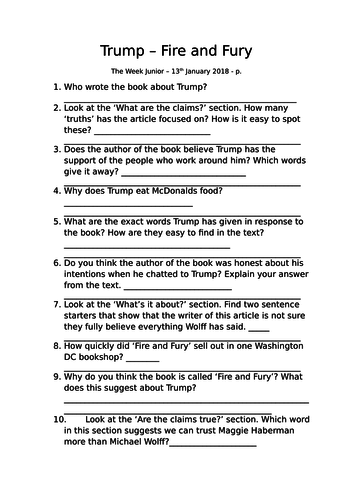46Uploads
39k+Views
16k+Downloads
English

Alan Peat 2a sentences (adjectives, commas for lists)
A lesson to introduce Alan Peat's 2a sentences, presented in a word document so that it can be edited for your needs as required. Pages 1,2,4 can be presented on the IWB screen to the children. These involve the introduction, individual/partner activity using whiteboards and the instructions for the plenary activity (which involves editing and improving a previous piece of the child's English work with this new skill). Page 3 needs to be printed as the worksheet for the main activity (finding 2a sentences in a short story and then writing some of their own 2a sentences with prompts for ideas).

Apostrophes for possession / belonging / possessive
Here we have all of the resources for a lesson on possessive apostrophes that assumes some children will know the basics already. It would be good for the first lesson *you* have taught them on it, assuming they have done it sometime last year, or as a revision lesson after a long break.
It starts with the whole class reading an article and spotting missing apostrophes before focusing in on some whiteboard work using pictures as prompts. A partner work/table group game (which could be made competitive or even silly/funny if you like!) is then followed by some written activities to go in the book. Plenary and homework provided too!

Year 6 SPAG Quiz Competition for KS2 SATs Revision
This quiz is made up of 5 rounds with ten slides of questions per round plus a bonus question (usually a harder challenge). Answers are provided so that the quiz could be left for a supply teacher/covering TA.
Play with the whole class working independently, or in teams (it is set up to be played by 2 teams which are indicated by shapes in top corner of each slide). Each slide also has colour coding for level of difficulty and an option for winning points on each question.
Each round has a particular theme or topic: tenses, phrases and clauses, punctuation, types of words and making words (including root words, suffixes and antonyms).

Writing skills book hunt (skimming and scanning looking for key skills)
In this activity, pupils need a fiction book to hunt for examples of authors using writing skills. Writing skills needed include those such as short sentences for drama, starting sentences in different ways and using different words for 'said'. It also asks them to find examples of ellipsis, exclamation marks, proper nouns, hyphenated words and commas in lists, among other things.
For each of the skills/examples required, there is an example given on the sheet to act as a model and to remind the pupils in case they have forgotten.

Homophones (4 activities with increasing difficulty)
Teaching homophones for an entire lesson is pretty hard work and the children get so overloaded with words that they can’t remember them all. So I created four smaller 10-20 minute activities to use as lesson starters or fillers to give children the words in smaller doses.
The first is a powerpoint, which would work best as a whole class with whiteboards. It asks if children know any different spellings for a given word and then uses pictures to support the teacher in giving definitions of the words.
The second is a matching activity (matching homophones to their definitions) that pupils could complete in pairs. These words are trickier and may require the children to use dictionaries.
The third activity is a gap fill, asking the children to choose the right homophone to complete the sentence. Again, dictionaries could be useful.
The final activity asks pupils to write their own sentences to show that they understand the different meanings of homophones. There is a points element that could help make this competitive if that’s the way you class works!
All activities meet NEW homophones; they are not repeated from previous activities.

Reading Comprehension - The Week Junior - 13.01.18 - Spanish Flu
If your children read The Week Junior, get them to read the ‘All about Spanish Flu’ article on p.12 in the 13th January 2018 edition. Follow it up with this quiz which is based mainly on reading comprehension skills. 10 questions. Great for morning work or guided reading.

Reading Comprehension - The Week Junior - 13.01.18 - Trump
If your children read The Week Junior, get them to read the President Trump article on p.2 in the 13th January 2018 edition. Follow it up with this quiz which is based on reading comprehension skills. 10 questions. Great for morning work or guided reading.

The Highwayman Unit - 5 sessions
This document has ideas for splitting The Highwayman into five sections with a follow up activity for each. These include a character sketch, a news report, a diary entry etc. An example of each of the follow up activities is given, written by one of my students, which you could share as model for your students. There is a basic outline of ideas on the document but you may wish to make your own powerpoints/extra resources.








